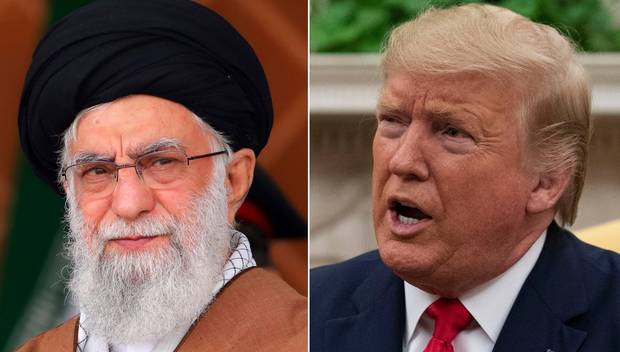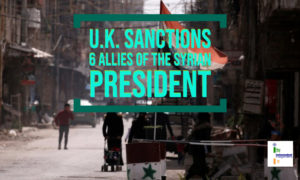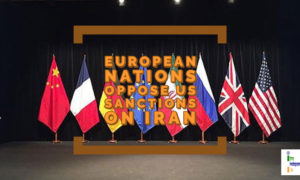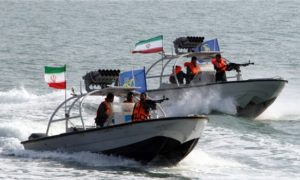
Trump has said that U.S. will not respond with military but will impose serious sanctions on Iran
The President of U.S. – Donald Trump has said that U.S. will not respond with military but will rather impose serious and heavy economic sanctions on Islamic Republic of Iran, in response to their missile attacks of January 8, 2020.
Trump was referring to the 22 missiles that were launched by Iran at 2 Air Bases of Al-Assad and Ebril in Iraq, that house the U.S. troops. The attack was a retaliation from Iran for the killing of Major General of Islamic Revolutionary Guard Corps (IRGC) – Qasem Soleimani by the U.S.
Addressing the Press Conference, Trump said, “As long as I am President of the United States, Iran will never be allowed to have a nuclear weapon.”
Besides, the U.S. has also said that it is ready to negotiate with Iran, provided Iran is ready to negotiate without pre-conditions in serious negotiations.
In a letter to the United Nations (U.N.), the U.S. stated that killing of Soleimani is an act of self-defence. Adhering to Article 51 of U.N. Charter, it immediately informed the U.N. about the killing of Soleimani. Article 51 requires States to immediately report to the U.N. Security Council (UNSC), the measures taken under self-defence. The U.S. Ambassador to the U.N. – Kelly Craft said the U.S. was ready to negotiate “with the goal of preventing further endangerment of international peace and security or escalation by the Iranian regime.”
However, the Iran’s Ambassador to U.N. – Takht Ravanchi has said that U.S. cannot be believed as, on one hand, it is saying that it is open for negotiations without pre-conditions and, on the other hand, it is threatening Iran with severe economic sanctions.
Ravanchi also informed the UNSC that Iran does not seek escalation or war. Also citing the Article 51 of U.N. Charter, he said that Iran has exercised its right to self-defence by taking a “measured and proportionate military response targeting an American airbase in Iraq.”
The Supreme Leader of Iran – Ali Khamenei has termed the attacks as a “slap in the face” of the U.S. He also clarified that the missiles were not meant to target the U.S. troops but were meant to ensure that U.S. troops leave Middle East.
For the records, Trump had earlier also offered to hold talks with Iran without pre-conditions and meet the President of Iran – Hassan Rouhani. However, at the same time, Ali Khamenei announced that Iran would never hold talks with the U.S. as it is their policy to pressurise the nations during negotiations. Khamenei also said that if the U.S. re-joins the now abandoned Joint Comprehensive Plan of Action (JCPOA) deal, it will consider speaking to them.
Signed on July 14, 2015 in Vienna, the members to the deal included Iran, the P5+1 (the 5 permanent members of the United Nations Security Council—China, France, Russia, U.K., U.S. – plus Germany) and European Union (E.U.). It stated that Iran will eliminate its stockpile of medium-enriched uranium, cut its stockpile of low-enriched uranium by 98%, and reduce by about 2/3rd the number of its gas centrifuges for 13 years. For the next 15 years, Iran would only enrich uranium up to 3.67%.
But when U.S. abandoned the deal, Iran started producing low-enriched uranium beyond the permissible limits of JCPOA. Trump now wants a new deal where the U.S can curb Iran’s ballistic missile programme and its involvement in regional conflicts.
Notably, Trump’s nod for killing Soleimani and now exercising restraint by not responding with military to Iran gains significance as U.S. is all set to hold its Presidential polls in 2020.







